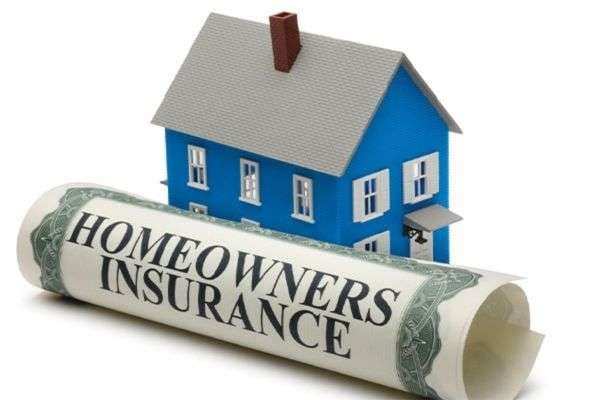Home Insurance
One of the most fulfilling experiences in life is owning a home. Your sanctuary, the foundation of all memories, and a large investment, your home. But ownership comes with rewards and responsibilities, one of the core obligations is securing your dwelling from unprecedented occurrences. This is where home insurance comes into the picture, specifically designed for homeowners and their properties. It covers everything you need to know about home insurance, why you should have it, and how to cut your bill.
What is Homeowner Insurance?
Home insurance, more commonly called homeowner insurance is a contract that provides financial protection against risks and perils linked to your house. It helps recoup losses for things such as fire, personal theft vandalism, and some natural disasters. In short, Home Insurance Costs Protect Your Investment and Save You from Financial Ruin if Something Goes Wrong.
Home Insurance Coverages
A standard home insurance policy includes several essential coverages:
Dwelling Coverage: This insurance covers the structure of your home, including walls and built-in appliances. Dwelling coverage — If your home is damaged by a covered peril, dwelling coverage will pay for repairs or rebuilding.
Personal Property Coverage: This covers your personal property, such as furniture, electronics clothing, and other items inside your house against theft or damage.
Liability Protection: Provides financial protection if someone is injured on your property and sues you. It would also protect you from the damages that either you or some of your family members have caused to someone else´s property.
Additional Living Expenses (ALE) Coverage: If a covered event makes your home unlivable, ALE pays the cost of any temporary housing needs you may have until you can get back in.
How to Save on Home Insurance Costs
While home insurance is essential, it’s also important to find ways to save on your premium. Here are some effective tips to help you reduce your home insurance costs:
1. Shop Around and Compare Quotes

The ConsumerThese Escrow Quotes Are What Had Everyone Talking And For Good ReasonSnap Your Skis in Half — Fix It! Before making a decision, spend time shopping around for insurance and soliciting quotes from several providers. Research will save you a lot of money because various companies charge different amounts and offer different discounts.
2. Bundle Your Policies
Most insurance providers will give you a discount when you bundle different policies at the same company such as home and auto. Not only does this make managing your insurance easier, but it can also lower the premiums you pay.
3. Increase Your Deductible
Your premium can be lowered simply by raising your deductible (that is, the cash you pay before insurance coverage starts). Just be sure it is an amount you can live with should the need to file a claim come.
4. Improve Home Security
Increasing the security of your home can result in savings. Security systems, smoke detectors deadbolts, and other safety features all contribute to a lower risk of damage or theft which makes you attractive for discounted premiums.
5. Maintain a Good Credit Score
Credit Scores Impact Rates: Insurers frequently rely on credit scores to set rates. You also need to have a decent credit score so that you can get lower rates. Make sure your bills are paid on time, you reduce debt and always check out with to where your credit score is standing.
6. Review Your Coverage Annually
Your interests will evolve, and with them migrate your insurance requirements as well. Check your policy yearly to make sure you are not over-insured or paying for things you don’t need To Update Your Life Changes If your life changes (e.g., you get married or have a baby), then make sure to tell your insurer ASAP. This will allow them to ensure that what options they can offer suit how much cover is appropriate for you and it may bring down the cost of the premium by making adjustments in policy.
7. Inquire About Discounts
There are lots of discounts to be had, many of which might surprise your estate government. Some of these include such things as deductions for customer loyalty, claim-free, and new home discounts. Feel free to inquire with your provider about the discounts that are accessible.
8. Opt for a Policy with an Extended Replacement Cost
Although not an immediate money-saver, extended replacement cost protection ensures you will have enough coverage to replace your home if it is destroyed without concern of exceeding adequate insurance limits due to inflation — or added construction costs. It would prevent any surprise expenditures if a total loss should occur.
Common Myths About Home Insurance
Myth: Home Insurance Covers Everything
Fact: Home insurance covers every event. Typically, floods and earthquakes are not allowed under your self-storage policy for example. Some of those risks might require you to pay for extra coverage.
Myth: Market Value Equals Coverage Amount
Fact: The amount of coverage on your home should be for the cost to rebuild, not the market value. The land does not require cover, only the structure and content.
Myth: Small Claims Won’t Affect Premiums
Fact: Lower gear may lead to higher premiums The decision to claim or not after a minor repair can be weighed against the higher premiums you could face as a result of making claims on your policy.
Conclusion
Home insurance is an essential tool for every homeowner. It provides financial security, fulfills mortgage requirements, and offers peace of mind. By understanding the components of home insurance and taking steps to save on your premiums, you can protect your home without breaking the bank.
If you find this article useful, consider subscribing to our YouTube channel. You can also read our previous article on Auto Insurance.

